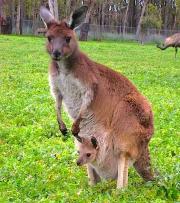
Table of Contents
Mammals can be generally classified into three broad groups: egg-laying monotremes, marsupials, and placentals. A marsupial is a mammal that raises its newborn offspring inside an external pouch at the front or underside of their bodies. In contrast, a placental is a mammal that completes embryo development inside the mother, nourished by an organ called the placenta. Both marsupial and placental mammal groups give birth to live young. Each animal in an ecosystem occupies a specific position. Niche is the word used to describe the specific role that an organism (or a population) fills in a specific environment, including the resources it uses and its competitors for those resources.
Placental mammals account for the majority of modern mammal species alive today. Most extant marsupials can be found in Australia and South America although the fossil record shows that they were once more widespread.

Image copyright and source